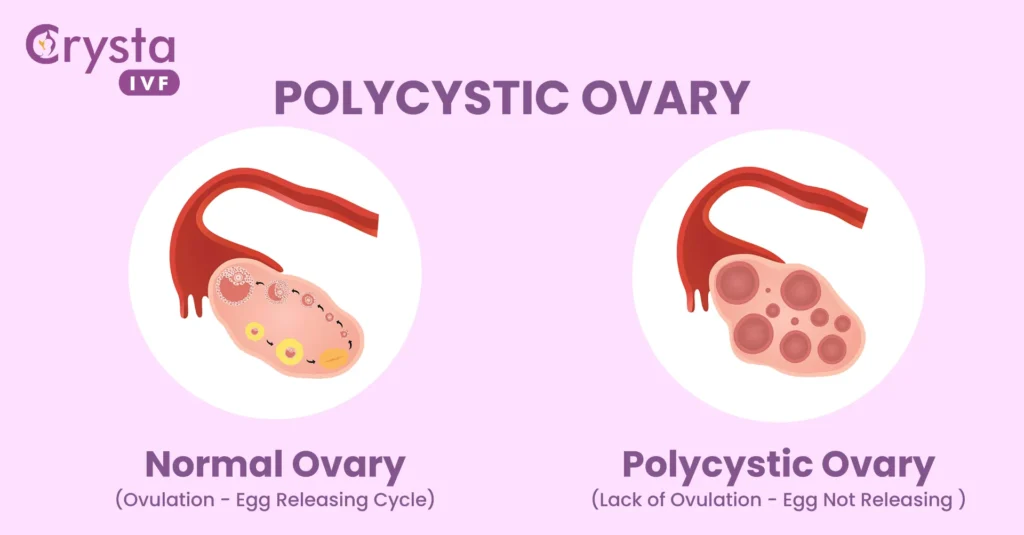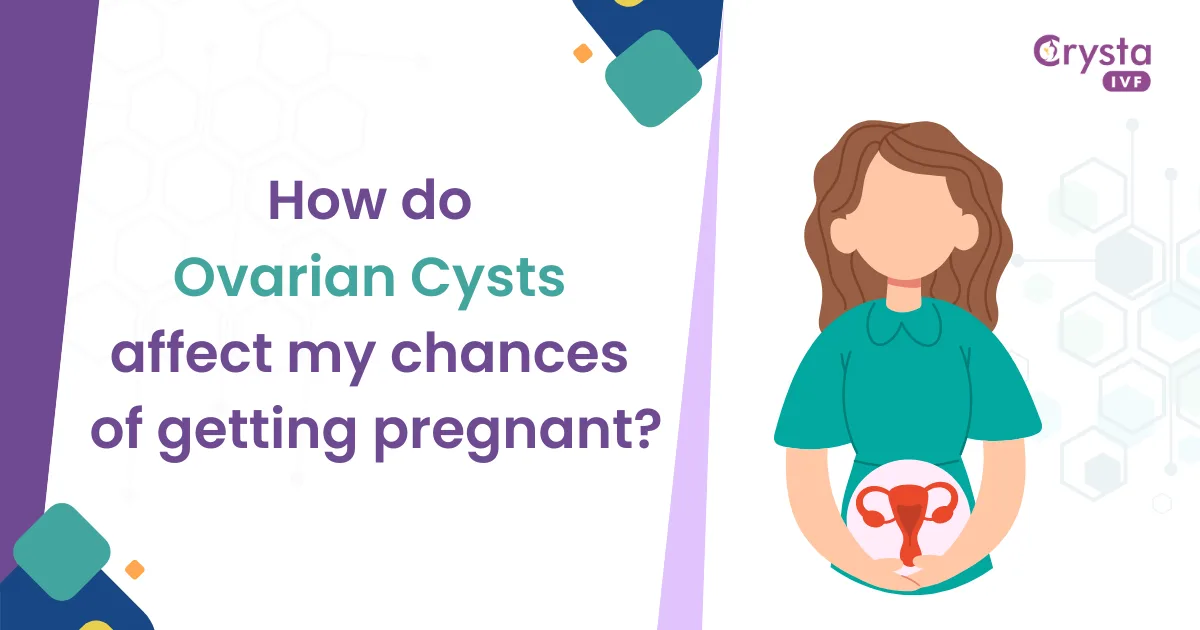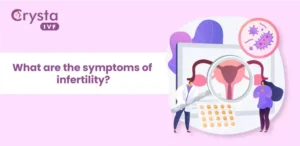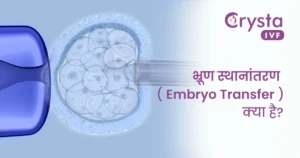Pregnancy is a beautiful journey that every woman wants to experience at least once in her life. It comes naturally to most, but for some, it is still complicated. Even the statistics tell us that the sexual health of women has declined in recent years.
To be true no woman wants to hear she has an issue with her ovaries, especially when she has been trying to conceive for more than a year.
But the harsh truth is that ovarian cysts have become a common factor affecting a normal pregnancy. Though not all cysts are dangerous and harm your health, some do not show any early symptoms and eventually disappear.
However, the other side of the story informs about the ovarian cysts associated with decreasing fertility. They emerge as one of the biggest obstacles in a woman’s journey to conceive.
Thus, read on to identify how ovarian cysts can affect your pregnancy and the methods to deal with them. But first, let us first understand what are ovarian cysts.
Ovarian Cysts: The Analysis
Ovarian cysts are sacs (filled with fluid) in an ovary or on its surface. Females have two ovaries, and each ovary reflects an almond due to its shape and size. Every month, eggs develop, mature in the ovaries, and are released in the monthly cycle. It is common to develop ovarian cysts in most cases, as most of them are harmless and disappear easily. At the same time, some cause severe damage and can only be detected by an ultrasound or regular pelvis exam.
Symptoms
Usually, ovarian cysts don’t show any symptoms and go away on their own, but a large ovarian cyst can show signs like
- Bloating
- Fullness, Pressure, and heaviness in your belly
- Severe Pelvic Pain
These are the most observed symptoms in a woman that indicate you are diagnosed with an ovarian cyst. However, to identify how these cysts lead to female infertility, let us comprehend the causes of ovarian cysts.
The connection between ovarian cysts and infertility
Some ovarian cysts are associated with an impact on your fertility, while others barely have any effect. However, the cysts that obstruct the path of pregnancy are
Ovarian cysts that affect fertility
Endometriomas: These are the cysts caused by endometriosis. It is a condition in which the tissue grows inside the uterine lining and spreads to the other reproductive organs. Generally, these cysts that develop in the ovaries are filled with dark brown endometrial fluid and are called “chocolate cysts.”
These chocolate cysts are sacs that contain blood. They get attached to the ovaries and affect their function. In most cases, these cysts stop the ovaries from working properly, and as a result, they prevent pregnancy.

Ovarian cysts due to PCOS: Polycystic ovarian syndrome (PCOS) is characterized by an irregular menstrual cycle, elevated levels of certain hormones, and many small cysts on your ovaries. Thus, when a woman does not have enough hormones to ovulate, small cysts start forming in her ovaries, contributing to problems with female fertility.
However, if these cysts are treated promptly, the chances of successfully becoming pregnant increase. Moreover, certain cysts are present in your ovaries but do not affect your chances of conceiving or cause female infertility are
Ovarian cysts that do not affect fertility
Dermoid Cysts- These are the solid cysts that contain tissues such as hair, skin, or even teeth instead of fluid. Thus they are not at all associated with infertility.
Functional cysts- They form during a normal menstrual cycle and do not contribute to female infertility. The most common functional cysts are follicular and luteal, ensuring that fertilization functions occur correctly.
Cystadenomas Cysts-Cystadenomas are ovarian growths that usually appear on the surface of the ovaries. Though they might need treatment, they do not affect fertility.
Hence, if you are diagnosed with ovarian cysts or experience any of these symptoms, you should seek medical attention as early as possible. Also, Make the necessary changes in your lifestyle to deal with these cysts before they become worse.
Lifestyle Tips to ease the condition of the ovarian cyst
Specific lifestyle changes can help to balance your hormones and reduce the toxic effects of cysts on your body. The suggested changes in your daily routine are:
Follow a healthy diet: Include food with high fiber (oranges, lentils, peas, pears), protein (fish, tofu, chicken), Omega 3 fatty acids (fish, flax seeds), Magnesium (bananas, cashew, almonds, avocados and green vegetables).
Exercise regularly: It is a proven fact that exercise helps you to shed extra calories, but along with providing regular fitness, exercising and physical activities help balance hormones, improve insulin, and reduce stress. It also helps boost fertility and increases the success rate of an IVF treatment.
Stay hydrated: Drinking water throughout the day is essential to tackle ovarian cysts issues. Thus, drinking almost 1.5 to 2 liters of water daily is suggested for a better recovery.
Making a certain change in lifestyle can only help to an extent. If the health conditions worsen, a minor surgery such as laparoscopic surgery is needed. Moreover, if you want to plan for a baby, your fertility experts will recommend an IVF treatment.
Is it possible to get pregnant with ovarian cysts?
Women suffering from ovarian cysts might face fertility issues. However, it can still be managed by making essential lifestyle changes and minor surgeries. However, in some severe cases where the medications or other treatments fail and the existing cysts cause scarring, it becomes almost impossible for a woman to conceive naturally. Thus, the last option for a woman is to go for in-vitro fertilization (IVF) treatment.
IVF is one of the most popular forms of assisted reproductive technology and is regarded as the best treatment to treat infertility. In this process, a woman’s ovaries are artificially stimulated by hormonal injections to mature the eggs. Later, they are extracted from the ovaries to fertilize in a modern lab with healthy sperm to form an embryo implanted into a woman’s uterus.
Henceforth, breaking all the myths, it is right to say that a cyst can prevent a woman from conceiving naturally. But, with the help of a fertility specialist’s consultation, she can effortlessly plan for a healthy baby with the help of IVF treatment.
Getting a consultation with a fertility specialist
Women who have ovarian cysts and undergo endometrioma cyst removal treatment may experience scar tissue or permanent damage to healthy ovarian tissue. While women with PCOS cysts experience significant hormonal imbalances, taking medications and lifestyle changes is nearly ineffective. In these circumstances, getting a consultation with a fertility specialist is a must.
Thus, if you are planning for a baby, and cannot decide what path to choose, get a consultation with a fertility expert. Be sure to talk to your doctor about your goals and how effective an IVF treatment can turn out for you, depending on your health condition.
At Crysta IVF, renowned fertility specialists have made it their specialty to offer nearly all forms of advanced fertility treatments. Thus, make sure to receive a customized consultation from the best IVF centre in Patna to plan for a healthy baby.




